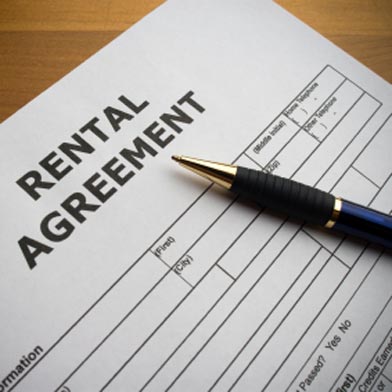Dave’s here to answer your questions every Wednesday, so send them to him at tenant@sfappeal.com, here’s what to make sure to include in your letter.
 I have a question about rental/tenant law for a multi-unit building in San Francisco that was built in the 1920s. When a person who was not on the original lease moves in and starts paying checks to a manager in their name, does that give them status as an official tenant for whom the rent cannot be raised? Basically, I moved into the apartment of a man who I was dating at the time.
I have a question about rental/tenant law for a multi-unit building in San Francisco that was built in the 1920s. When a person who was not on the original lease moves in and starts paying checks to a manager in their name, does that give them status as an official tenant for whom the rent cannot be raised? Basically, I moved into the apartment of a man who I was dating at the time.
He moved to LA, and I began to pay rental checks to the manager. About 2 years after the original tenant moved out, it came to the attention of the landlord that I was occupying the apartment and her lawyer sent me a letter raising the rent.
At that time, it was unclear to me whether I was considered an official tenant for whom the rent could not be raised – after all, the landlord’s agent, the manager, had been accepting my checks.
To keep things amicable, I negotiated a slightly lower rental increase (an increase of about 10% or $150/month) and signed a new lease. I’m wondering if I was a sucker and should have held out for maintaining the original rent?
No, you were not a sucker! As a practicing attorney, I have learned (sometimes the hard way) that outcomes in trial or other proceedings like Rent Board hearings are often uncertain. You simply settled your case without going to arbitration. Remember, about 95% of all court litigation settles before trial. You are not a sucker, you’re simply a pragmatist.
Now, let’s do some Wednesday morning quarterbacking.
There are two statutes that come into play when analyzing the facts of your case. If you had gone to arbitration, the landlord would have relied on The Costa Hawkins Rental Housing Act (Ca. Civil Code sections 1954.50-1954.535) to justify the rent increase. Specifically section 1954.53(d)(4) provides:
“Acceptance of rent by the owner shall not operate as a waiver or otherwise prevent enforcement of a covenant prohibiting sublease or assignment or as a waiver of an owner’s rights to establish the initial rental rate unless the owner has received written notice from the tenant that is party to the agreement and thereafter accepted rent.”
The landlord would argue that you are not an original occupant and, despite the fact that you paid rent directly to her agent, he did not waive his right to increase the rent.
By the way, Costa Hawkins should be repealed. I believe that all tenants should email their legislators every hour of every day demanding a repeal of Costa-Hawkins so that rent control can be uniformly applied to all buildings in San Francisco and other rent controlled jurisdictions.
Your counter argument would derive from San Francisco Rent Board Rules & Regulations section 6.14(c)(1-3). A subsequent occupant can show that a landlord , in fact, waived his right to increase the rent by:
“(1) Affirmatively representing to the subsequent occupant that he/she may remain in possession of the unit at the same rental rate charged to the original occupant(s); or
(2) Failing, within 90 days of receipt of written notice that the last original occupant is going to vacate the rental unit or actual knowledge that the last original occupant no longer permanently resides at the unit, whichever is later, to serve written notice of a rent increase or a reservation of the right to increase the rent at a later date; or
(3) Receiving written notice from an original occupant of the subsequent occupant’s occupancy and thereafter accepting rent unless, within 90 days of said acceptance of rent, the landlord reserved the right to increase the rent at a later date.”
(I’m assuming that inception of the original tenancy was after January 1, 1996 and that your BF moved out on or after April 25, 2000.)
In a hearing, you would argue that the landlord agent’s conduct of accepting rent from you for two years operates as a waiver to her right to increase the rent. Hopefully, you could add facts like, “I told the manage that my ex moved out; I handed my check to the manager every month; I made numerous repair requests, etc.”
I’ve seen many of these cases at the Rent Board and they all depend on the facts. Earlier this month we denied an appeal from a landlord because the facts were clear the his agent had accepted the subsequent occupant as a an ordinal tenant. But I have seen cases in which the landlord prevails with, frankly, similar but not as compelling facts.
So, no, you weren’t a sucker settling a case that, conceivably, you could have lost.
Dave Crow is an attorney who specializes in San Francisco landlord tenant law. However, the opinions expressed in these articles are those of the author, do not constitute legal advice, and the information is general in nature. Consult the advice of an attorney for any specific problem. You understand that no attorney-client relationship will exist with Dave Crow or his firm, Crow & Rose unless they have agreed to represent you. You should not respond to this site with any information that you believe is highly confidential.
Want more news, sent to your inbox every day? Then how about subscribing to our email newsletter? Here’s why we think you should. Come on, give it a try.









